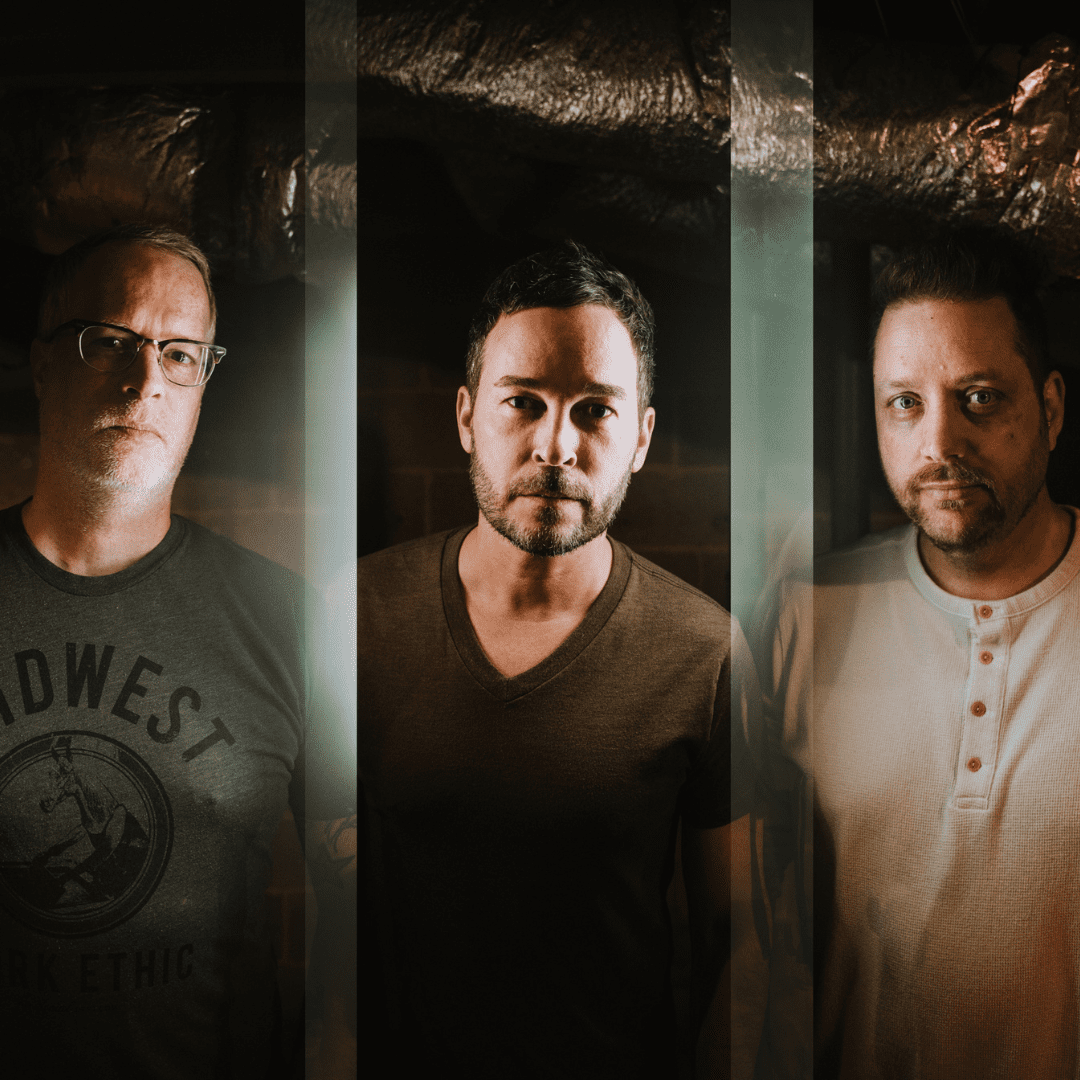Riot for Romance, the American post-punk band known for songs like “The World And Its Weight” and “Less For Regret,” has exciting news for fans. In our interview with the group, they confirmed a highly anticipated follow-up project to their self-titled EP and cover of Radiohead’s “Karma Police.” The upcoming album promises to delve into the theme of unburdening from toxic worldviews, offering a fresh perspective on the struggles of everyday life.
Jason Hansen, Brett Miotti, and Kelly Nunn, the members of Riot for Romance, shared their songwriting process and how they approach intimate topics. They write from their own experiences, aiming to create music that resonates with a larger audience. The band’s most valuable lesson, they revealed, is to have fun and enjoy the creative process. This mantra centers them and keeps them grounded, allowing them to create authentic and compelling music.
Riot for Romance also talked about their dream of headlining at festivals such as Coachella, Riot Fest, All Points East, and Wide Awake Festival. In preparing for live performances, they spend countless hours running through the set, tweaking the song order, rehearsing breaks, and making sure sonically the show has the same elements as their recordings while still giving unique elements in a live setting.
Continue to read the full interview below.
Your upcoming album explores the concept of unburdening from toxic worldviews. Can you elaborate on how this theme came about and how it influenced the songwriting process?
[Brett] We’re fortunate. As close friends (the kind you call family,) we talk about life with each other often. We were chatting and I mentioned making the decision to no longer feel burdened by things I can’t control and to focus on what I can control. What came from the conversation was this ethos of taking life’s baggage collected over the years and offloading it. What does that look like? It’s different for each of us. Some of it is instilled by our families, some by the culture around us, and some from our own misguided steps. The topic certainly gives an entire album of material to explore it!
As a band with members in multiple states, how do you balance individual creativity with the need for collaboration and communication?
[Brett] I think we’re still learning how to balance it… but we’ve found this formula that somehow works. We talk almost daily and as close friends we are fortunate to “get each other” often when it comes to communicating.
[Kelly] What has always been interesting is we all kind of write on our own. When we feel we have something that’s worth sharing, then we start sending it to everyone to add individual parts.
[Jason] Once a song idea or riff is posted for the other bandmates to check out, it becomes a life of its own. We identify with each other’s song writing strengths and are self-aware too. We don’t hold on too tightly to the original concept and just let it naturally evolve.
[Brett] We’re also mindful to not be butthurt when an idea you are attached to changes drastically or gets tossed out. Admittedly, I’m probably the worst of the three of us at that.
[Kelly] We all stay in constant communication within the writing process so that we can bounce ideas back-and-forth off each other. That allows us all to have the same creative vision for the song.
How do you approach writing about intimate topics, and what role does vulnerability play in your music?
[Jason] It starts with recognizing that singing is like any other instrument. For me, that means singing with authenticity and passion. I tend to look at an intimate topic and try to extract the emotion it evokes. So, when I write lyrics, I want them to specifically connect to an emotion – one that everyone experiences so that anyone can relate that emotion to something in their own life. This way, it can be personal to each person listening. At the same time, I am writing from my own experience, so it’s always personal to me.
[Brett] The three of us have a very close personal relationship and sometimes song topics or lyrics will just spill out naturally from those conversations. Jason seems to just write what he knows… and has a gift for making it relatable to a larger audience or open to different interpretation. So, I think vulnerability, and maybe passion, play a huge part.
You recently covered Radiohead’s “Karma Police” and put your own spin on it. How do you choose which songs to cover, and what is your creative process for interpreting them in your own style?
[Brett] We’re all big-time music “heads.” So, we are often sharing music with each other that we enjoy—whether to connect on something or challenge each other musically. This band kind of started solely on the premise of combating boredom during the pandemic and learning a song by one of our favorite artists. We took that song and had fun reinterpreting it. It’s becoming an unspoken tradition to start each project with this band by recording a cover.
[Kelly] Generally, we’ll look at songs that are classics or deep cuts. These are songs that have room to be sonically reinterpreted as well as in how they are played. We tend to put our spin on covers the same way we write our own music – putting it out there for each of us to contribute ideas.
[Jason] There is something satisfying about putting your own spin on a classic song you love. It’s one thing to simply cover a song exactly as it was first released but interpreting it in your own ethos while still paying homage to the original is its own artform. Honestly, it puts yourself in a vulnerable spot as a musician, because you’re being judged through the lens of the original.
You’ve mentioned using technology to your advantage in collaborating and recording as a multi-state band. How has technology influenced your music-making process, and are there any tools or programs that have been particularly helpful?
[Kelly] Personally, I’ve been using technology over the last decade to record, mix, and master projects from clients all over the world. If you have a good laptop and solid internet connection, you can do it. So, when the band decided to record from different states, it made sense. When using digital workstations, we use it to our advantage to create and shape music compositions. Programs like Logic and Pro Tools give you the medium to create and record music. The vision comes from the person writing the songs, and these tools help us bring to life the sound we hear in our heads.
[Brett] Using Logic Pro, I’m able to record something and share it versus trying to tell the other guys in a sweaty rehearsal room what I’m trying to convey. Showing instead of telling has its advantages.
What has been the most valuable lesson you’ve learned so far as a band, and how has it influenced your techniques for creating and performing music?
[Jason] “If it ain’t fun, we done.” That’s our benchmark as a band. No egos here; just fun. Do we have our moments bickering? Of course, what family doesn’t? But the motto centers us when we do and keeps us grounded. The most important lesson is loving each other, leaning on each other for support, and celebrating each other’s personal value and creative energy. Anyone can learn to play an instrument. People can even fake a stage presence. But there is something so pure and satisfying when authentic bonds are on display through creating and performing music. It makes an incredible difference.
Are there any particular shows or festivals that you dream of headlining in the future? What’s your process for preparing for live performances and ensuring that you provide the best possible experience for fans who come to see you?
[Kelly] I’d love to play at Coachella. Who wouldn’t want to play one of the biggest stages in the world. It would be great to play the When We Were Young festival. That right up our fan base.
[Brett] Headlining? Dang. So much pressure. I do think there are festivals out there that would be a good fit for us. Top of mind is Riot Fest in Chicago. (“Riot.” Maybe it’s a sign? HA.)
[Jason] Is London calling? We’re ready to go! Maybe All Points East or Wide Awake Festival.
[Kelly] Performing live is an art form. It takes dedication and hard work to complete a live performance so that it’s engaging and entertaining at the same time. We spend countless hours running through the set, tweaking the song order, rehearsing breaks, making sure sonically the show has the same elements as our recordings while still giving unique elements in a live setting, and that it is a strong set from start to finish. We want people to make sure people remember our set.
Listen to Riot for Romance’s music below:






